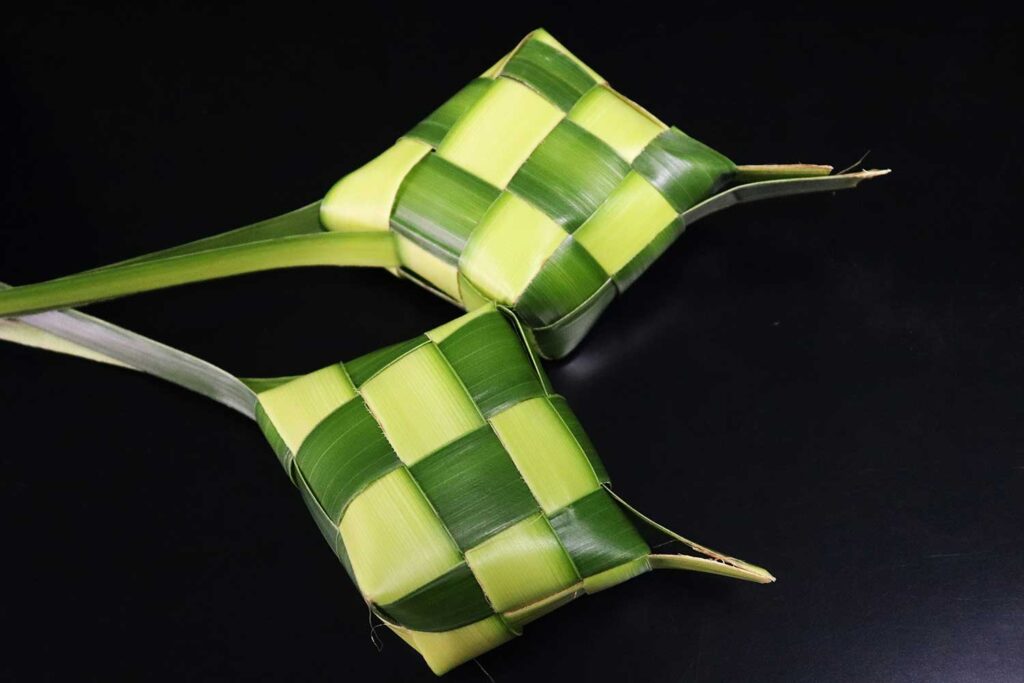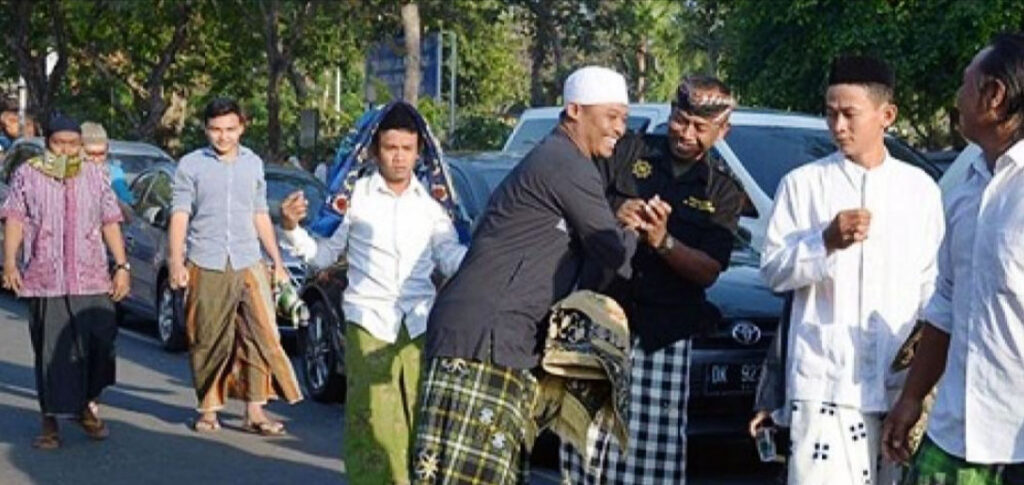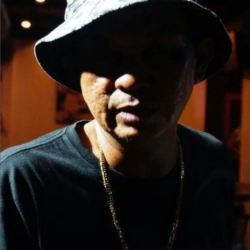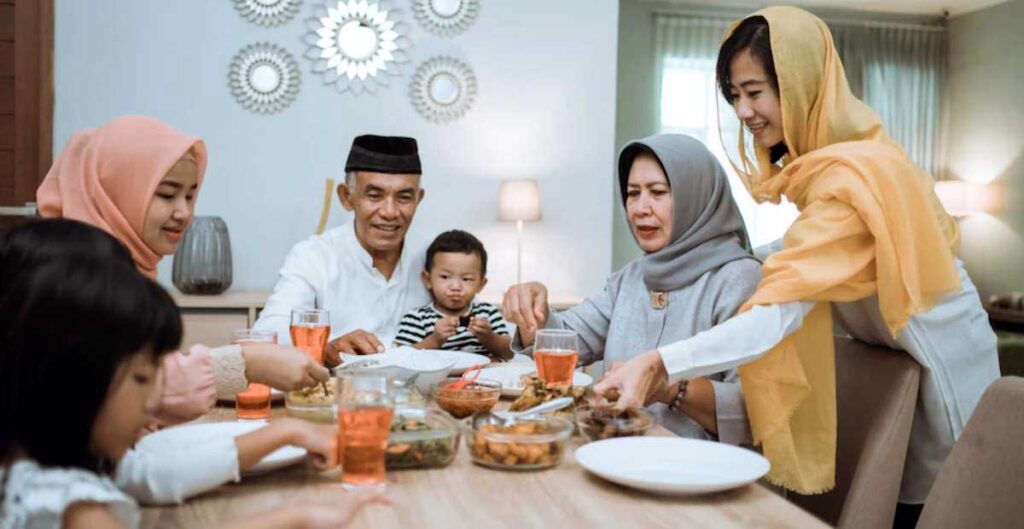Indonesia, a country known for its diversity of ethnicities, cultures, and religions. Among its 38 provinces, stretches a panorama of traditions and rituals of the holy month of Ramadan observed by Muslims. A month filled with meaning and the uniqueness of its traditions, the majority of Muslims in Indonesia welcome this holy month with joy, fostering kinship, and enriching spirituality.
The Holy Month of Ramadan is a blessed time eagerly anticipated by Muslims worldwide, including in Indonesia. The cultural diversity in Indonesia gives rise to many unique traditions and activities to welcome this sacred month. The habits that emerge during Ramadan are noteworthy to all citizens, given that approximately 87% of Indonesia’s population of 278,877,941 are Muslim.
During the month of Ramadan, Muslims observe fasting for a full 30 days. The Idul Fitri day is considered a day of victory for those who have completed the full 30 days of fasting, combating their own desires, and receiving rewards for successfully fasting for a full month.
In Islam, rewards are part of the divine justice concept, where every good deed will receive a fair reward from Allah. This concept also serves as motivation for Muslims to continue doing good, increase spiritual awareness, and draw closer to Allah in every aspect of their lives.
Fasting: Forging the Soul and Strengthening the Bond with the Creator
Ramadan fasting involves adhering to the five basic rules of Islam and is considered one of the most important religious practices for Muslims. Ramadan fasting begins from dawn (Fajr) until sunset, during which a Muslim is expected to refrain from eating, drinking, smoking, and engaging in marital relations from dawn until sunset.
Fasting is not just about abstaining from physical things but also entails self-control from bad behavior, harsh words, and deepening one’s connection with Allah SWT through prayers, reading the Quran, and other charitable deeds.
Under the full moon’s embrace, the recitation of the holy verses of the Quran resonates in mosques worldwide. After breaking the fast, activities such as congregational prayers or Tarawih prayers in mosques can be performed.
Self-Restraint and Increased Obedience
Fasting trains oneself to control desires, avoid prohibitions by Allah SWT, and increase obedience to Him. The hunger and thirst endured serve as a reminder to always be grateful for the blessings bestowed by Allah SWT.
Fostering Empathy and Compassion
During Ramadan, Muslims are encouraged to give charity or Zakat o the poor in need. This Zakat is usually given before the arrival of Ramadan. Additionally, they do it while fasting for a full month. Thus, fasting has many meanings, not just restraining desires but also fostering empathy and concern for the poor.
Enriching Spirituality and Strengthening Faith
Fasting becomes a moment to enrich spirituality by increasing worship, such as Tarawih prayers, Quranic recitation, and listening to religious lectures. This moment also serves as an opportunity for self-reflection, contemplating sins committed, and seeking forgiveness from Allah SWT.
Fasting: A Valuable Spiritual Journey
Fasting is not just about abstaining from hunger and thirst but is a valuable spiritual journey to forge the soul and strengthen the bond with the Creator. Ramadan becomes a special moment to increase piety, multiply acts of kindness, and foster love and affection among fellow human beings.
The diversity of Ramadan traditions in Indonesia reflects the cultural richness and religious values of the nation. The lively Ramadan atmosphere in Indonesia is evidence that diversity can unite in tolerance and brotherhood.
Ramadan traditions practiced throughout Indonesia
Ngabuburit: Before breaking the fast, the tradition of ngabuburit (ending the fasting period in a day) becomes a special moment. Hunting for Takjil delicacies in Ramadan markets, relaxing in parks, or playing with friends and family are favorite options. The sound of the drum signals the Maghrib prayer time to break the fast, and delicious iftar meals are ready to be enjoyed with family or friends.
Hunting for Takjil: Takjil refers to light snacks or drinks sold before the breaking of the fast. Hunting or buying Takjil in the afternoon is a tradition of Muslims observing fasting. Therefore, you may encounter traffic jams in some areas as Muslims hunt for iftar menus.
Sahur and Tarawih Traditions: In the evening, the tradition of waking up for sahur (pre-dawn meal) at 3 am with drums and gongs is still preserved in some areas. In the evening at 7 o’clock, the mosque atmosphere is bustling with congregants performing Tarawih prayers.

Ketupat is a traditional Indonesian dish commonly served during Eid al-Fitr, also known as Idul Fitri, celebrations. It is made from rice that has been wrapped in woven palm leaves and boiled until it is compact and firm. The process of making ketupat involves weaving young coconut leaves into a pouch-like shape and filling it with rice before boiling it in water. The result is a uniquely shaped, diamond-like rice cake. Ketupat is often enjoyed with various dishes such as opor ayam (chicken in coconut milk) or rendang (spicy beef stew) during festive occasions, symbolizing unity and gratitude among families and communities.
Vibrant Ramadan in Bali: Tolerance and Togetherness
Amidst the splendor of Bali Island, known for its natural beauty and culture, there is also a high level of warmth and tolerance in welcoming the holy month of Ramadan. Although the majority of Balinese people are Hindus, Muslims on the island can observe fasting comfortably and devoutly.
The Vibrant Ramadan in Muslim Villages in Bali

In several Muslim villages in Bali, such as Kampung Bugis, and Islamic villages in the city of Denpasar and Javanese villages in Klungkung, the atmosphere of Ramadan is deeply felt. Since the morning, the aroma of delicious Takjil can be smelled from the kitchens of residents who will sell Takjil in the evening.
Ngabuburit and Iftar Together Tradition in Bali
The ngabuburit tradition in Bali is equally interesting. Before breaking the fast, Muslim residents in Bali usually spend time hunting for Takjil in Ramadan markets located in Muslim settlements.
Tolerance and Togetherness Among Religious Communities
The beauty of Ramadan in Bali is also seen in the tolerance and togetherness among religious communities. Hindus in Bali also respect fasting Muslims. It is not uncommon for them to help provide places for Tarawih prayers and break the fast together. The Pecalang (Traditional Balinese village security) also participate in guarding and securing Tarawih prayers at mosques every night during the month of Ramadan.
Ramadan in Bali serves as a beautiful example of how tolerance and togetherness can harmoniously exist. Muslims in Bali can observe their worship comfortably and devoutly, amidst a community mostly Hindu. The spirit of Ramadan serves as a reminder for all of us to continue to maintain unity and harmony among religious communities.
Ramadan, a Month of Kindness and Togetherness
Ramadan is a time to increase charity and foster kinship. Short-term Islamic boarding schools and religious studies are held to increase knowledge and faith. Traditions such as Zakat al-Fitr and the tradition of returning to hometowns during Idul Fitri, are important moments to share happiness with family.Idul Fitri is also commonly referred to as “lebaran” in Indonesian.
Idul Fitri, the Peak of Happiness and Victory
After a full month of fasting, the day of Idul Fitri arrives, marking the peak of the Ramadan celebration. Idul Fitri symbolizes victory over desires and a moment to return to purity. Muslims flock to mosques or open fields to perform Idul Fitri prayers, also known as Eid prayers. The tradition of gathering
“Selamat Berpuasa” dan “Selamat Idul Fitri/ Lebaran” are common greetings given to Muslims during the month of Ramadan which means Happy Fasting and Happy Idul Fitri.




